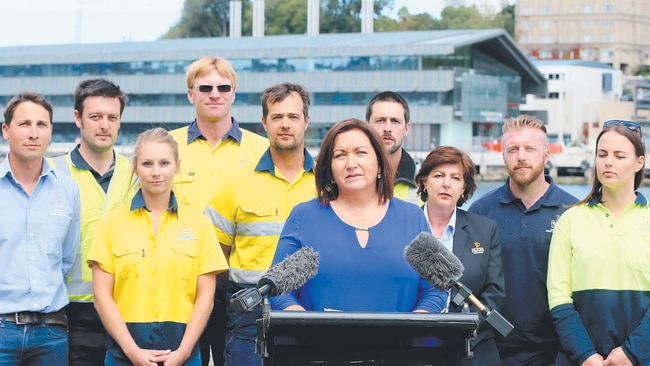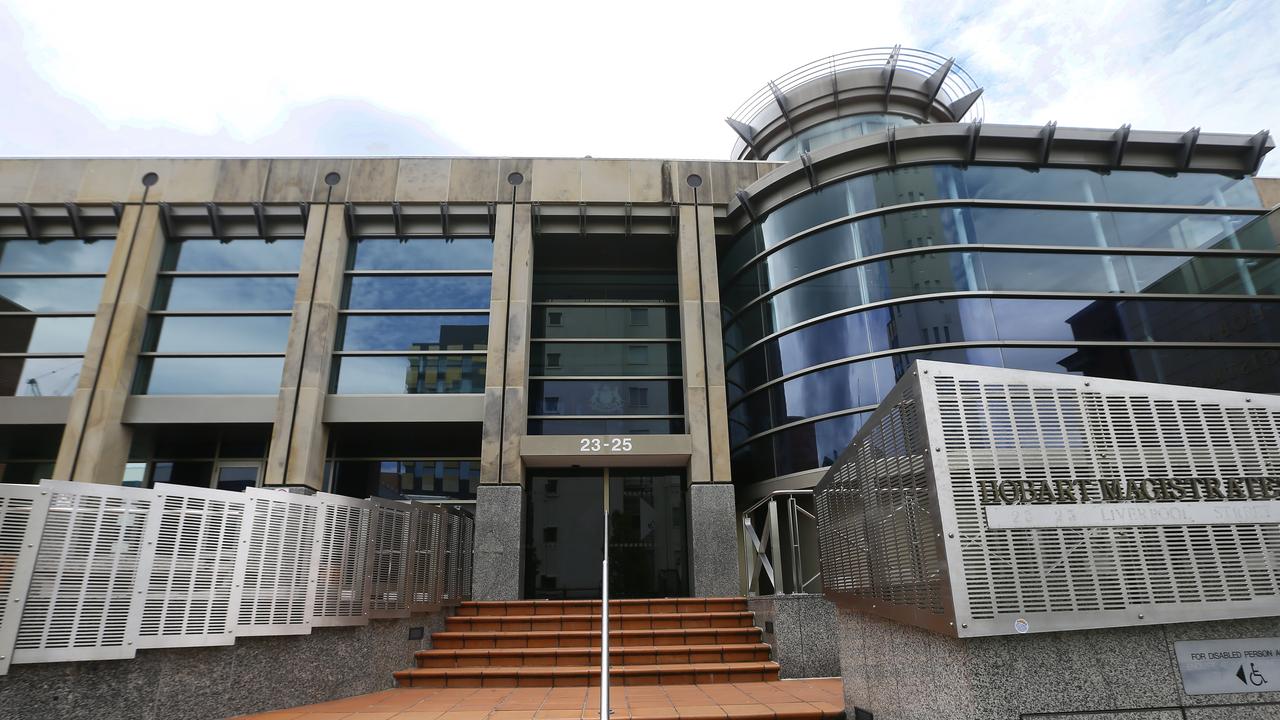Huon Aquaculture launches court action to ‘protect harbour’
HUON Aquaculture has launched legal action against industry regulators over what it says is a last resort to prevent more environmental damage to Macquarie Harbour.

Scales of Justice
Don't miss out on the headlines from Scales of Justice. Followed categories will be added to My News.
HUON Aquaculture – Tasmania’s second biggest salmon farming company – has launched legal action against industry regulators over what it says is a last resort to prevent more environmental damage to Macquarie Harbour.
Huon said science showing a continuous decline in dissolved oxygen levels and a significant effect from salmon cages on organisms living at the bottom of the harbour was behind its decision.
An IMAS study into environmental impacts on Macquarie Harbour – upon which Huon said it had based its decision – will soon be publicly released.
Huon has lodged papers with the Federal Court and Supreme Court of Tasmania, saying it had exhausted “all other avenues”, Huon executive director Frances Bender said.
Ms Bender said the move was about protecting jobs by ensuring the harbour was sustainably farmed.
“We believe that Macquarie Harbour can be farmed safely for the long term, but to do that we need to act now,” Ms Bender said.
In the Supreme Court, Huon lodged proceedings against Environment Protection Authority director Wes Ford and Primary Industries Minister Jeremy Rockliff, requesting that the EPA’s January determination that the harbour could safely stock 14,000 tonnes of salmon be declared invalid.
MORE: EPA TELLS FISH FARMERS TO LOWER PEN STOCKS
Ms Bender said: “Our view is that the recent biomass determination made by the EPA director fails to properly regulate marine farming in Macquarie Harbour, and will cause ongoing environmental harm.
“We simply don’t understand how the decisions that have been made have been arrived at in light of the science that is screaming out now that there is a problem.”
At the time Mr Ford said he had made the determination based on IMAS’s research, low levels of dissolved oxygen, the presence of Beggiatoa species, and the decline in benthic fauna near the farms.
The previous cap was 21,500 tonnes.
Ms Bender said the biomass should not exceed 10,000 tonnes.
Macquarie Harbour regulations also require that there are no significant visual impacts from salmon farming on the harbour floor at or beyond 35m from a lease boundary.
But Ms Bender said the impacts extended for hundreds of metres from some leases, and had also been found inside the World Heritage area boundary.
The Federal Court case against the secretary of Tasmania’s Department of Primary Industries, Parks, Water and the Environment, the Federal Environment Minister and the director of the EPA seeks orders enforcing conditions imposed by the federal environment minister in 2012.
Huon claims that DPIPWE and the EPA have failed to comply with the conditions, which were intended to ensure expansion in the harbour did not lead to impacts on the habitat of threatened species – such as the Maugean skate – or the world heritage area which borders the area.
Huon will also ask the court to determine whether those conditions are effective and enforceable.
Tasmania’s other salmon farming companies have the option of joining the action.
Petuna acting chief executive David Wood said his company had not yet reviewed the court application.
But he said the decision appeared pre-emptive due to recent regulatory changes.
Tassal ruled out joining the action and did not want to comment further.
Mr Rockliff said the State Government was the biggest supporter of Tasmania’s salmon industry.
He said the government noted the proceedings and would not comment further.
Mr Ford said it would be inappropriate to comment.
Huon is not seeking damages from the government.


